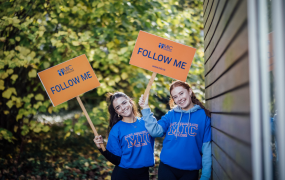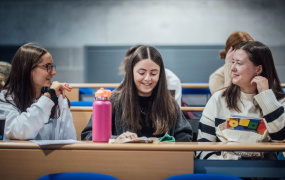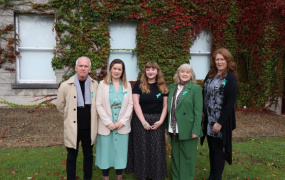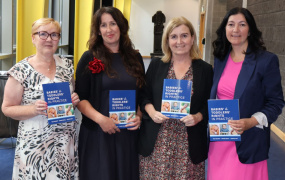Mathematics
About
Mathematics can be taken as part of the MIC Arts Degree as a joint honours combination.
You have an interest in Mathematics and wish to study something interesting, stimulating and challenging. You want to improve your problem solving and logical reasoning skills. You wish to develop a range of skills such as independent thinking, data modelling and analysis, computer literacy and organisational ability. You wish to develop an appreciation of the essential links between theory and practice, insofar as to know mathematics is to be able to do mathematics and to do mathematics well, one must understand what it is.
A study of mathematics has twin values: there is the intrinsic educational gain to be derived from the personal satisfaction of mastering a slightly elusive piece of theory, or from solving even a moderately difficult problem, and there is the extensive economic utility of mathematics. The latter is particularly visible in the commercial and business world and in the great achievements of science and engineering. At MIC we welcome students who have taken Ordinary Level Mathematics for their Leaving Certificate, as well as those who have taken it at Higher Level, so long as they have good grades and a keen interest in Mathematics. At the end of First Year, the decision on whether or not to continue with mathematics to degree level can then be based on the First Year experience and examination grades, rather than on the student's pre-College background.
First Year foundation courses are designed to take account of the mixed mathematical background of students. As such they are intended to be an appropriate introduction for students who wish to study Mathematics to degree level and a reasonable taste of the subject for students who wish to specialise in other subject areas.
The mathematics programme includes several modules in the main branches of pure mathematics: Analysis (calculus in one and in several variables), Algebra (elementary number theory, linear algebra and abstract algebra) and Geometry. Relevant applications of mathematical theory are included in course modules and there are complete modules on computational mathematics and on statistics.
Mathematics graduates find work in a wide range of careers, including:
- Banking and commerce
- Teaching (Professional Master of Education required)
- International and EU organisations
- Financial services
- Management services
- Statistics
- Civil service
- Informational Technology
- MA/PhD Research
- MSc Financial Mathematics (UL)
- Professional Master of Education (Post-Primary)
- About







